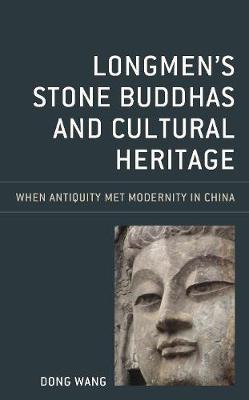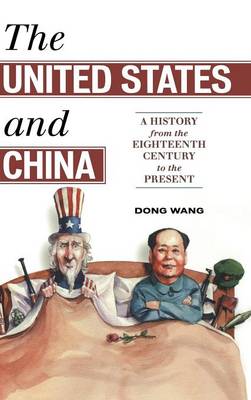Asia/Pacific/Perspectives
2 total works
This thoroughly researched book provides the first comprehensive history of how a UNESCO World Heritage site on the Central China Plain, Longmen's caves and the Buddhist statuary of Luoyang, was rediscovered in the twentieth and twenty-first centuries. Drawing on original research and archival sources in Chinese, English, French, German, Japanese, and Swedish, as well as extensive fieldwork, Dong Wang traces the ties between cultural heritage and modernity, detailing how this historical monument has been understood from antiquity to the present. She highlights the manifold traffic and expanded contact between China and other countries as these nations were reorienting themselves in order to adapt their own cultural traditions to newly industrialized and industrializing societies. Unknown to much of the world, Longmen and its mesmerizing modern history takes readers to the heartland of China, known as "Chinese Babylon" a century ago. With remarkable depth and breadth, this book unravels both a bygone and a continuing human pursuit of artefacts-shared, spiritual, modern, and above all beautiful that have linked so many lives, Chinese and foreign.
Combining original research with contemporary scholarship, The United States and China re-examines over two centuries of interaction between the United States and China in a changing world. It explains the foundations and character of their political, economic, military, social, and cultural relations, and shows how they have come to shape the domestic and international affairs of the two countries. American-Chinese relations have also been affected by national and global forces. Societal interchanges and government-level interactions are the dual themes of this research survey. Since 1784 when the first American ship, the Empress of China, landed in Canton (Guangzhou), U.S.-Chinese relations have moved from the periphery to the center of strategic attention, for both countries. This transformation has not eroded either American supremacy or Chinese sovereignty, but in the 21st century has given rise to a new order of national, bilateral, and supranational institutions that conjoins the two peoples. Progress, patience and, most importantly, peace are the proven historical cure for the various ills engendered by Sino-U.S. interactions.
This text offers the first comprehensive synthesis of the history of U.S.-Chinese relations from initial contact to the present. Balancing the modern (1784-1949) and contemporary (1949- ) periods, Dong Wang retraces centuries of interaction between two of the world's great powers from the perspective of both sides. The author explores key themes in each phase of the relationship and highlights important case studies for more in-depth treatment. She examines state-to-state diplomacy, as well as economic, social, military, religious, and cultural interplay within varying national and international contexts. In both form and content, these multi-faceted encounters have shaped one of the most significant bilateral relationships of our time. As China itself continues to grow in global importance, so does the U.S.-Chinese relationship, and this book provides an essential grounding for understanding its past, present, and possible futures.
This text offers the first comprehensive synthesis of the history of U.S.-Chinese relations from initial contact to the present. Balancing the modern (1784-1949) and contemporary (1949- ) periods, Dong Wang retraces centuries of interaction between two of the world's great powers from the perspective of both sides. The author explores key themes in each phase of the relationship and highlights important case studies for more in-depth treatment. She examines state-to-state diplomacy, as well as economic, social, military, religious, and cultural interplay within varying national and international contexts. In both form and content, these multi-faceted encounters have shaped one of the most significant bilateral relationships of our time. As China itself continues to grow in global importance, so does the U.S.-Chinese relationship, and this book provides an essential grounding for understanding its past, present, and possible futures.

